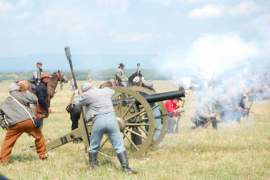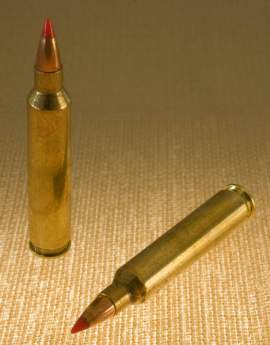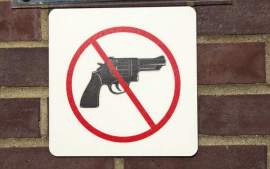
Guide to the Gun Control Reform Movements

Gun control reform movements are constantly attempting to implement or deny further restrictions regarding gun control laws and regulations, depending on which side of the argument a person may favor. Individuals supporting gun control will constantly lobby and push for more legislation to be considered in restricting firearms.
Those who support gun rights will attempt from allowing any further restriction be put in to action, and furthermore, will fight to remove some of the regulations already in place. The fact is that the heated gun control debate is one that is still very much present today, and has become part of the country's legal system when certain gun control implementations were enacted in to law.
Though there are several recent and current gun control reform movements, it can be said that the most important law reforms are the National Firearms Act of 1934 and the Gun Control Act of 1968. These two regulations on guns and firearms will essentially shape and form the rules and laws that are in place today.
The National Firearms Act of 1934 is the first official piece of legislation regarding gun control. This law statute is one that is still part of the gun control debate, and its constitutionality is still being held in question by staunch gun rights supporters such as the National Rifle Association. This legislation was passed to restrict the transfer of certain firearms and impose mandatory registration for those that fell under that category.
A tax was also to be imposed for all transfers for these firearm types. Some of the firearms subject to this law are machine guns, short barreled rifles and shotguns, as well as gun suppressors or silencers. These types of firearms and their components were restricted based upon the argument that no ordinary citizen would have any particular need to employ such weapons under normal circumstances.
Gun rights activists continue to argue that as long as the users of firearms are legitimately allowed to be in possession or ownership of weapons, there should be no reason as to barring the use of certain kinds of guns. Though the law is still in place today, certain additions have been made to extend certain registrations, such as the Gun Control Act of 1968.
The Gun Control Act that was passed in 1968 was partly put in to law as a result of the John F. Kennedy assassination, where Lee Harvey Oswald obtained the rifle used to kill the president through a mail-order catalog. This aspect is only but a provision of the various rules and regulations under this act, that serves the broad guidelines instituted today by federal law. Some of these provisions barring or regulating firearms include:
No convicted felon may purchase, possess, or carry a firearm
No fugitive of justice may be in possession, carry, or purchase a firearm
No illegal aliens
No people with a history of addiction to controlled substances
No person dishonorably discharged from the military or armed forces
No person that has renounced U.S. citizenship
The Gun Control Act also implemented the Federal Firearms License, which was needed to be in the business of buying or selling firearms, which properly excluded mail-order weapons and guns at the time. This implementation did apply to individuals buying or selling firearms for their own personal use.
Other additions were made in more recent times, such as the Brady Handgun Violence Prevention of 1993, and the Domestic Violence Offender Gun Ban added 1996. The Brady Act created the national background check system that is still used today to prevent restricted people from purchasing firearms. The Domestic Violence Ban was directed to stop those with a history of domestic violence, or have active restraining orders from acquiring firearms. Many have opposed the Gun Control Act from its inception in 1968.
It has been at the center of the gun control debate then, and still is now. However, even gun rights activist like the NRA agree with some of the law's junctures, such as possession by felons, while others disagree with the entire body of legislature completely, stating that restrictive laws fail to prevent crime and prove unnecessary. Though gun control facts have proven to a certain extent that restrictive laws help lower crime rates, some laws implemented seem to only make it tougher and more difficult for legitimate gun owners.
More recent gun control debate news deals with a recent gun law passed by the state of California implementing a new system regarding the purchasing and selling of firearm ammunition. The new law requires that all ammunition purchasers provide personal information to be kept on file as well as fingerprint. Law enforcement agencies will then have the records available to them and conduct background checks on buyers if need be.
The reason for this new implementation is because there is no current background check needed for the purchase of ammunition; only the basic age requirements must be met via presenting proper documentation. This new law compensates for not having the instant checks system, but also seems to restrict lawful firearms owners. The NRA has argued that the law makes it extremely inconvenient for legitimate gun owners to acquire ammunition, and that the requiring of personal information at the time of purchase is a violation of privacy.
Others argue that the new legislation does not necessarily restrict felons from acquiring ammunition because most will try to purchase it by normal means. Thus making the new law seem to not meet its intended purpose, which is used as an example by gun rights activists as to how gun laws do not necessarily regulate crime.
NEXT: Gun Control Examples of Gun Control Efforts in American Cities





















